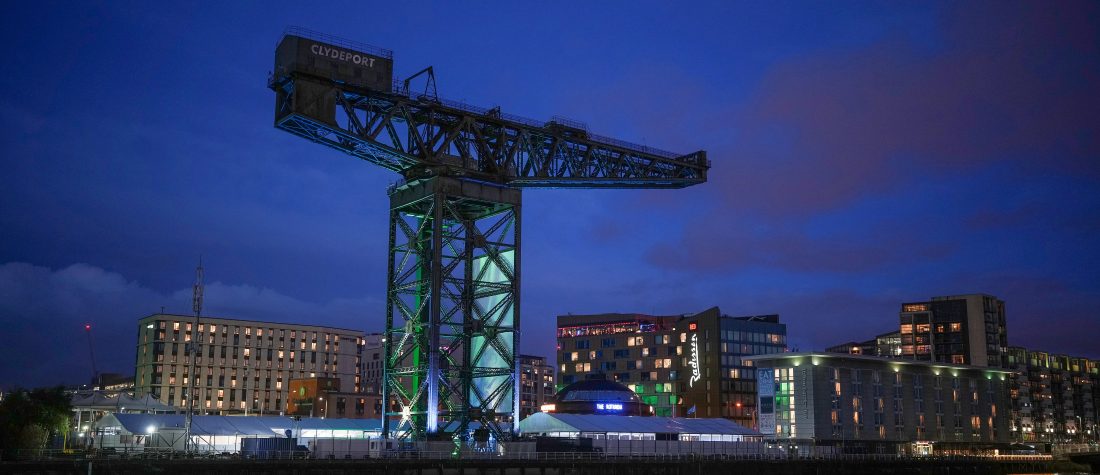After 25 Cops, it might have been hoped that with yet one more heave the Glasgow Cop26 would have got the job done, put the world on a path to net zero and held out the prospect of limiting global warming to 2˚C. This is not what happened.
What matters for climate change is the concentration of greenhouse gases in the atmosphere, and that is a balance between natural sequestration and emissions. The fact is that carbon has been increasing in its concentration by about 2 parts per million (ppm) every year, year in and year out, since 1990. Stunningly, it went up 2ppm last year, despite the temporary large falls in emissions caused by the lockdowns in response to the coronavirus pandemic. It did so in the great financial crash of 2007–08, and this year is unlikely to be different.
Net zero isn’t enough
How could all the Cops result in not even a dent? The answer is that Cops are all about territorial carbon production emission targets: the Nationally Determined Contributions (NDCs). They are not actually about carbon concentrations. Take the UK’s unilateral net zero target for 2050. It measures carbon emission in the UK, but ignores the carbon embedded in imports. Instead of focusing on the UK’s carbon footprint – its carbon consumption – it measures something that looks good as the economy de-industrialises. It conveniently ignores all the steel, petrochemicals, fertilisers, aluminium and even cement that comes from elsewhere. Just try to construct your own personal carbon diary for a few days and look at the labels “made in China” and elsewhere.
Carbon knows no boundaries. It is no accident that the UK and the EU look good on a territorial carbon production basis, while China is pushing up towards 30 per cent of global territorial emissions. The future of the climate is going to be determined in the great developing countries – China, of course, but also India and Sub-Saharan Africa. It will be determined by how much more carbon is lost from the soils as agriculture intensifies (soil has three to four times the carbon of the atmosphere), and by the destruction of the rainforests. It won’t be determined in the UK.
Paths not taken
What these Cops should have been doing is focusing on carbon consumption, treating imports on the same basis as domestic carbon production, and treating all sectors in the economy on the same basis: transport, agriculture, heating and electricity. They should have been looking hard at carbon sequestration, which is the other half of the problem. And they should have been looking primarily at how to enhance sequestration and reduce emissions in places like China, India, Brazil and the Sub-Saharan countries.
A coherent climate summit would have set carbon-consumption NDCs, been serious about carbon pricing at the border as well as at home, and addressed the problems of funding developing countries and the protection of the rainforests.
Missing the target
Cop26 did come up with a $100bn-a-year carbon fund, and a $14bn rainforest fund (part-public and part-private). Sounds good, but actually these numbers reveal how utterly inadequate Cop26 has been.
The $100bn is not new, and it has never been delivered. Even at $75bn (the most creative accounting way of adding up current contributions), it is just equal to the annual dividend of Saudi Aramco. The $14bn has been promised in the past – less than the spend on the Test and Trace scheme in the UK to deal with the pandemic. No wonder the rate of Amazonian destruction is at an all-time high, and the Cop26 deal allows that to
go on for the rest of this decade.
This is really serious. We will go beyond 2.7˚C even if all the commitments at Glasgow are met. What’s more, the soils
and peat and natural sequestration problems will only further exacerbate the rises in temperature. Cop26 tells us that this top-down UN-led process is not up to the job. But it suits our leaders, just as it suits them to tell us that not only is decarbonisation not going to cost very much, but, on a unilateral national basis, the costs of decarbonisation are worth it because they are less than the costs of global warming. It is nonsense: the costs of carbon mitigation in the UK will not stop global climate change. We will have to pay both.
Coalition of the willing
What could still be achieved is a realisation that we need a different approach. It is not rocket science to work out how to create a bottom-up coalition of the willing, based upon carbon consumption, serious funding transfers and political leaders telling the truth about the costs.
Dieter Helm is Professor of Economic Policy at the University of Oxford and author of Net Zero: How We Stop Causing Climate Change (William Collins)


